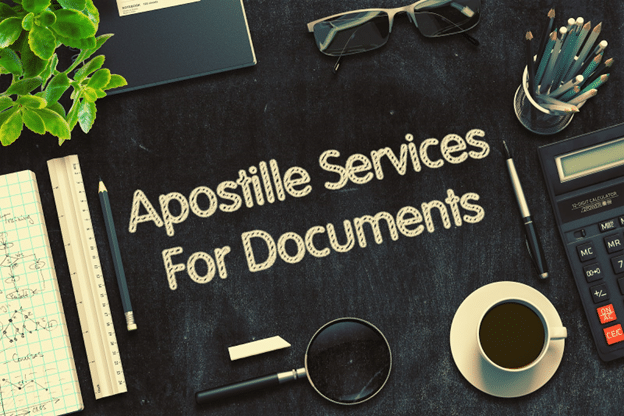Exploring the Factors Behind the Required Demand of Apostille Qualification for Legal Documents
In the world of legal paperwork, the necessary demand of apostille certification has become a vital aspect that considerably impacts the validity and acknowledgment of lawful documents on a worldwide range. Comprehending the rationale behind this requirement involves diving into the elaborate web of lawful intricacies, historical precedents, and international arrangements that highlight the value of apostille accreditation in today's interconnected world. By exploring the underlying factors behind this extensive requirement, a more clear photo emerges of why this seemingly governmental procedure holds such immense significance for organizations, people, and federal governments alike.
Historical Advancement of Apostille Accreditation
Just how did the principle of apostille certification develop over time to become a crucial part of worldwide paper recognition? The need for a simplified technique of confirming files for usage throughout boundaries came to be apparent as worldwide trade and traveling raised.
Initially embraced by a few European countries, the Apostille Convention progressively acquired worldwide approval as a result of its performance and effectiveness in validating the authenticity of main documents. For many years, the convention's reach expanded as more countries joined, acknowledging the apostille as a generally approved kind of paper verification. Today, apostille qualification has become a conventional demand for verifying legal papers in international transactions, ensuring smooth communication and lawful process in between countries.
Simplifying International Paper Legalization
The streamlining of worldwide document legalization treatments has actually considerably boosted efficiency in cross-border deals. Simplifying the process of legislating records for international use has actually come to be vital in facilitating swift and smooth purchases between countries. One of the vital devices that have contributed to this simplification is the adoption of the Apostille Convention, which gives a standard method for verifying the authenticity of papers throughout getting involved nations.
By adhering to the Apostille demands, nations concur to identify each various other's public documents as valid without the need for additional legalization. This eliminates the frequently troublesome and prolonged process of several authentications by different authorities, saving time and resources for businesses and individuals participated in global tasks.

Ensuring Document Credibility and Credibility
To guarantee the credibility and legitimacy of lawful records in worldwide deals, stringent confirmation processes are important - Houston Apostille. Lawful documents play an essential role in cross-border transactions, and ensuring their authenticity is vital to maintain the honesty of such deals. By requiring apostille qualification for legal documents, authorities aim to authenticate the beginning of files and validate the trademarks of individuals entailed. This process aids stop fraud, misstatement, and other negligences that could threaten legal process or international arrangements.
Furthermore, confirming the credibility of lawful records via apostille certification boosts trust and confidence among events involving in international deals. It supplies guarantee that the documents presented are authentic and lawfully binding, therefore reducing the dangers connected with illegal tasks. Furthermore, making certain document validity with apostille accreditation streamlines the legalisation procedure, making it extra efficient and trusted for companies and people performing organization throughout boundaries. Ultimately, by upholding strict verification standards, apostille certification adds to an extra safe and secure and clear global lawful framework.

Facilitating Cross-Border Legal Recognition
In the realm of international transactions, the apostille qualification not only guarantees the authenticity and validity of lawful records yet additionally plays an essential function Visit Website in helping with cross-border lawful acknowledgment (Houston Apostille). When legal papers birth an apostille certificate, they are readily approved by foreign authorities without the need for more verification. This streamlined procedure speeds up the recognition of records in various nations, promoting efficiency and lowering administrative hurdles in lawful matters that go beyond national limits
Helping with cross-border lawful acknowledgment through apostille accreditation cultivates trust and confidence in the credibility of documents exchanged in between nations. By sticking to the standards set forth by the Apostille Convention, countries concur to recognize the apostille seals fastened to documents from other member countries, therefore streamlining the procedure of lawful acknowledgment throughout borders.
Conformity With International Treaty Requirements
Compliance with international treaty standards is important for making sure the uniform application of legal guidelines throughout getting involved countries. The Apostille Convention, developed in 1961, outlines the requirements for the approval of public records amongst participant nations. By sticking to the criteria stated in this treaty, countries devote to identifying the credibility of each various other's certification without the requirement for further authentication - Houston Apostille. This shared approval enhances the process of cross-border file recognition, advertising performance and lowering governmental obstacles.
The Apostille qualification, as mandated by the treaty, offers as a guarantee of credibility for papers such as birth certifications, marital relationship licenses, court judgments, and notarized actions. This standardized strategy assists prevent fraudulence and makes sure that legal documents originating from one see participant country are readily accepted in one more. Additionally, by abiding by global treaty requirements, countries show their commitment to promoting the principles of openness, depend on, and collaboration in lawful matters on a worldwide scale.
Final Thought

In the world of legal documents, the obligatory demand of apostille qualification has ended up being a crucial aspect that considerably affects the legitimacy and acknowledgment of legal papers on a global range. Today, apostille certification has become a conventional need for confirming lawful documents in worldwide transactions, guaranteeing smooth interaction and lawful process in between countries.
Moreover, verifying the credibility of legal documents through apostille accreditation improves depend on and confidence among celebrations engaging in international transactions.In the realm of international purchases, the apostille accreditation not only makes certain the credibility and validity of legal documents yet additionally plays a crucial duty in promoting cross-border lawful recognition. By adhering to the standards established forth by the Apostille Convention, countries concur to recognize the apostille seals attached to files from other participant nations, therefore simplifying the process of lawful recognition across boundaries.